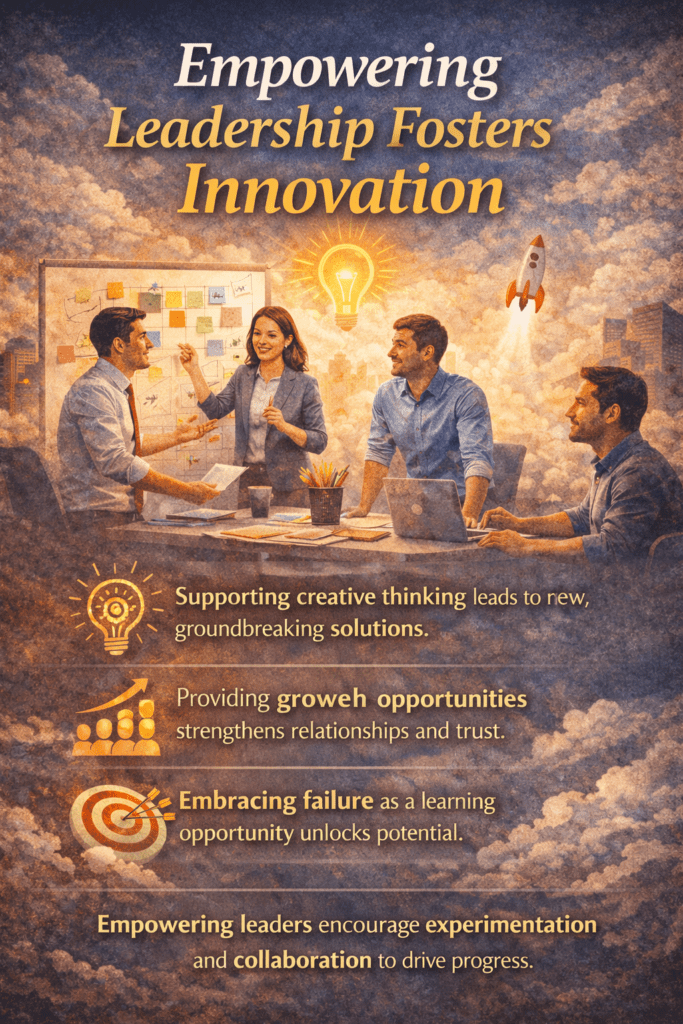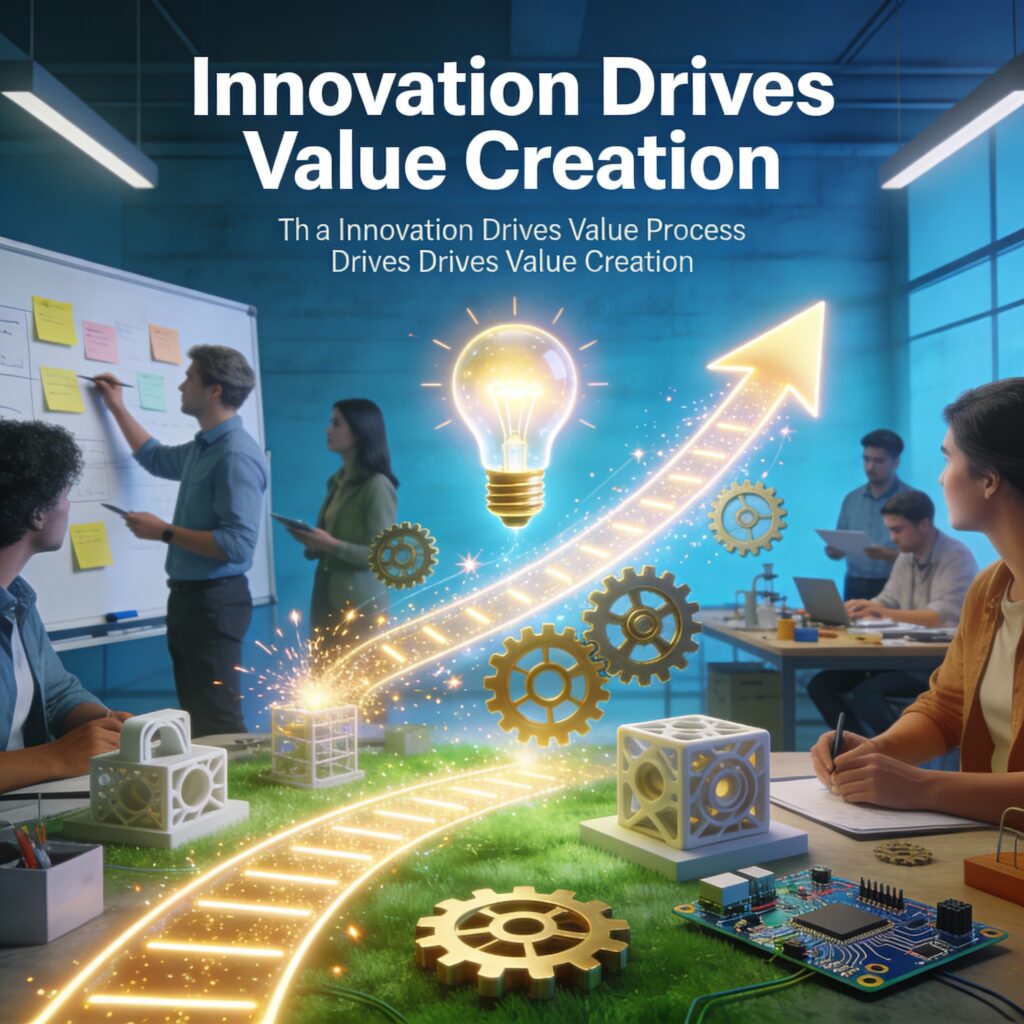In today’s rapidly evolving landscape, the concept of value creation has emerged as a cornerstone for organizations striving to thrive amidst change. As we navigate through an era marked by technological advancements, shifting consumer preferences, and global challenges, the ability to create and deliver value has never been more critical. We find ourselves in a world where change is not just inevitable; it is a constant force that shapes our strategies, operations, and interactions.
Embracing value creation allows us to not only adapt to these changes but also to leverage them as opportunities for growth and innovation. Value creation is not merely about financial gain; it encompasses a broader spectrum that includes enhancing customer satisfaction, fostering employee engagement, and contributing positively to society.
As we delve deeper into the intricacies of value creation, we recognize that it serves as a guiding principle that informs our decisions and actions.
By prioritizing value creation, we position ourselves to build resilient organizations capable of navigating the complexities of change while remaining focused on long-term success.
Key Takeaways
- Value creation is crucial in driving successful change within organizations.
- Leadership plays a key role in driving value creation through change initiatives.
- Technology has a significant impact on value creation and should be leveraged effectively.
- Employee engagement is essential in driving value creation within organizations.
- Innovation is a critical factor in creating and sustaining value within an organization.
Understanding Value Creation in Change
To fully grasp the significance of value creation in the context of change, we must first understand what it entails. Value creation refers to the process of enhancing the worth of products, services, or experiences for customers, stakeholders, and society at large. It involves identifying and addressing the needs and desires of our target audience while ensuring that our offerings align with their expectations.
In times of change, this process becomes even more crucial as we must remain agile and responsive to evolving market dynamics. As we explore value creation further, we realize that it is not a one-time effort but an ongoing journey. It requires us to continuously assess our value propositions and adapt them to meet the changing demands of our customers.
This adaptability is essential in a world where consumer preferences can shift overnight due to technological advancements or societal changes. By fostering a culture of value creation, we empower ourselves to innovate and refine our offerings, ensuring that we remain relevant and competitive in an ever-changing environment.
The Role of Leadership in Driving Value Creation

Leadership plays a pivotal role in driving value creation within organizations. Effective leaders not only set the vision and direction for their teams but also inspire and motivate them to embrace change as an opportunity for growth. As we reflect on our own experiences, we recognize that strong leadership is characterized by a commitment to fostering a culture of value creation.
This involves encouraging open communication, collaboration, and a willingness to take calculated risks. Leaders who prioritize value creation understand the importance of aligning their organizational goals with the needs of their customers and stakeholders. They actively seek feedback and insights from their teams, creating an environment where everyone feels empowered to contribute ideas and solutions.
By championing value creation, leaders can instill a sense of purpose within their organizations, driving engagement and commitment among employees. This alignment between leadership and value creation ultimately leads to enhanced organizational performance and resilience in the face of change.
The Impact of Technology on Value Creation
In recent years, technology has emerged as a powerful catalyst for value creation. As we embrace digital transformation, we find ourselves equipped with tools and platforms that enable us to enhance our offerings and streamline our operations. From data analytics to artificial intelligence, technology provides us with valuable insights that inform our decision-making processes and help us better understand our customers’ needs.
Moreover, technology facilitates innovation by enabling us to develop new products and services that address emerging market demands. As we harness the power of technology, we can create personalized experiences for our customers, enhancing their satisfaction and loyalty. However, it is essential for us to remain mindful of the ethical implications of technology in value creation.
We must ensure that our use of technology aligns with our values and contributes positively to society, fostering trust and transparency in our relationships with customers and stakeholders.
The Importance of Employee Engagement in Value Creation
Employee engagement is a critical component of value creation that often goes overlooked. Engaged employees are more likely to be motivated, productive, and committed to delivering exceptional value to customers. As we reflect on our own workplaces, we recognize that fostering a culture of engagement requires intentional efforts from leadership.
This includes providing opportunities for professional development, recognizing achievements, and creating an inclusive environment where all voices are heard. When employees feel valued and engaged, they are more likely to contribute innovative ideas that drive value creation. Their insights can lead to improvements in processes, products, and customer experiences.
Additionally, engaged employees are more likely to advocate for the organization externally, enhancing its reputation and attracting new customers. By prioritizing employee engagement as part of our value creation strategy, we can cultivate a workforce that is not only committed to organizational success but also passionate about making a positive impact on society.
The Role of Innovation in Value Creation

Innovation is at the heart of value creation, serving as a driving force that propels organizations forward in times of change. As we navigate an increasingly competitive landscape, we must embrace innovation as a means of differentiating ourselves from others. This involves not only developing new products and services but also reimagining existing processes and business models to enhance efficiency and effectiveness.
To foster a culture of innovation, we must encourage experimentation and risk-taking within our organizations. This means creating an environment where failure is viewed as a learning opportunity rather than a setback. By empowering our teams to think creatively and challenge the status quo, we can unlock new avenues for value creation that resonate with our customers’ evolving needs.
Ultimately, innovation enables us to stay ahead of the curve and position ourselves as leaders in our respective industries.
Measuring and Evaluating Value Creation
As we embark on our journey of value creation, it is essential for us to establish metrics that allow us to measure and evaluate our progress effectively. This involves identifying key performance indicators (KPIs) that align with our organizational goals and reflect the impact of our value creation efforts. By tracking these metrics over time, we can gain valuable insights into what is working well and where improvements are needed.
Moreover, measuring value creation goes beyond financial metrics; it encompasses customer satisfaction scores, employee engagement levels, and social impact assessments. By adopting a holistic approach to measurement, we can ensure that our value creation initiatives are aligned with our mission and values. Regularly evaluating our performance allows us to make data-driven decisions that enhance our ability to create lasting value for all stakeholders involved.
Overcoming Challenges in Value Creation
While the pursuit of value creation offers numerous benefits, it is not without its challenges. As we navigate change, we may encounter resistance from employees who are hesitant to embrace new processes or technologies. Additionally, external factors such as economic fluctuations or regulatory changes can impact our ability to create value effectively.
To overcome these challenges, we must adopt a proactive approach that emphasizes communication and collaboration. Engaging employees in the change process is crucial for overcoming resistance. By involving them in discussions about the rationale behind changes and soliciting their input on potential solutions, we can foster a sense of ownership and commitment among team members.
Furthermore, staying informed about external trends and challenges allows us to anticipate potential obstacles and develop strategies to mitigate their impact on our value creation efforts.
The Link Between Value Creation and Organizational Success
The relationship between value creation and organizational success is undeniable. Organizations that prioritize value creation are better positioned to achieve sustainable growth and profitability over time. As we reflect on successful companies across various industries, it becomes evident that their commitment to creating value for customers, employees, and society has been instrumental in their achievements.
By focusing on value creation, organizations can build strong relationships with their customers based on trust and loyalty. This not only leads to repeat business but also generates positive word-of-mouth referrals that can attract new customers. Additionally, organizations that prioritize employee engagement and innovation are more likely to foster a culture of continuous improvement, driving long-term success in an ever-changing landscape.
The Role of Culture in Fostering Value Creation
Organizational culture plays a significant role in fostering an environment conducive to value creation. A culture that encourages collaboration, innovation, and open communication empowers employees to contribute their best ideas and efforts toward achieving organizational goals. As we reflect on our own experiences within various organizational cultures, we recognize that those characterized by trust and respect tend to yield higher levels of engagement and productivity.
To cultivate a culture of value creation, leaders must model the behaviors they wish to see in their teams. This includes demonstrating a commitment to continuous learning, embracing diversity of thought, and recognizing the contributions of all employees. By creating an inclusive environment where everyone feels valued and empowered to share their ideas, we can unlock the full potential of our workforce in driving value creation.
Embracing Value Creation in an Ever-Changing World
In conclusion, embracing value creation is essential for organizations seeking success in an ever-changing world. As we navigate through challenges and opportunities brought about by technological advancements, shifting consumer preferences, and global dynamics, prioritizing value creation allows us to remain agile and responsive. By understanding its significance, fostering strong leadership, engaging employees, leveraging technology, promoting innovation, measuring progress effectively, overcoming challenges, recognizing its link to success, and cultivating a supportive culture, we position ourselves for sustainable growth.
As we move forward into an uncertain future, let us commit ourselves to embracing value creation as a guiding principle in all aspects of our work. By doing so, we not only enhance our organizational performance but also contribute positively to society at large—creating lasting impact for generations to come.
In a related article on unlocking 8 benefits for organizations by embracing change, the importance of value creation in change is further emphasized. This article explores how organizations can benefit from embracing change and adapting to new technologies and processes. It highlights the need for companies to constantly revise their strategies and embrace automation in order to stay competitive in today’s fast-paced business environment. By focusing on value creation in change, organizations can ensure long-term success and sustainability.
FAQs
What is value creation in change?
Value creation in change refers to the process of generating and increasing value within an organization through strategic and intentional changes. This can include improving products or services, optimizing processes, and enhancing overall performance to meet the evolving needs of customers and stakeholders.
Why does value creation in change matter?
Value creation in change is essential for organizations to remain competitive and relevant in today’s dynamic business environment. It allows companies to adapt to market trends, technological advancements, and customer preferences, ultimately driving growth and sustainability.
How can value creation be achieved in times of change?
Value creation in change can be achieved through various means, such as innovation, efficiency improvements, strategic partnerships, and customer-centric initiatives. It requires a proactive and forward-thinking approach to identify opportunities and leverage resources effectively.
What are the benefits of prioritizing value creation in change?
Prioritizing value creation in change can lead to increased customer satisfaction, higher profitability, improved employee engagement, and a stronger market position. It also enables organizations to future-proof their operations and drive long-term success.


